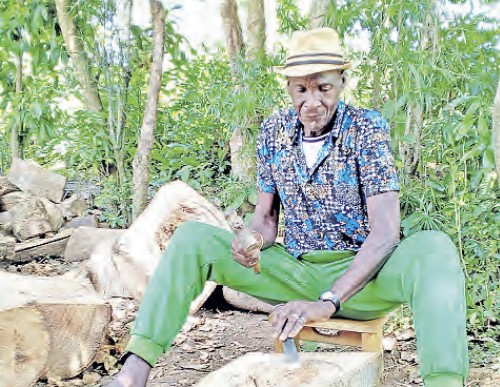

Nyatiti has ruled the entertainment scene among the Luo community since time immemorial.
No ceremony, be it a wedding or a memorial, would be complete without either a nyatiti or ohangla (orutu) player invited to entertain guests.
But the advent of the guitar and other modern musical instruments has over the years relegated the hitherto adored instrument to the periphery.
With age taking a toll on the music gurus of yore who would pluck the eight-stringed instrument with gusto as they knocked the bottom bar of nyatiti to produce a constant beat, very few of the current generation seem eager to take up from them.
But the introduction of the Competency-Based Curriculum seems to be changing the trend, with music teachers and some nyatiti enthusiasts taking advantage to help pass the knowledge to the younger generation.
One such enthusiast is Charles Mak’Omenda aka Obong’o Nyundo, who not only trains young players but also makes the traditional instrument.
Among his students are pupils of Ulawe Apate Primary School in Alego-Usonga, who have now mastered the instrument and have won trophies up to the national level during schools’ music festivals.
Obong’o says there is a need for concerted efforts to preserve Luo traditional music and instruments.
“We should not allow nyatiti to fade away,” he says while lamenting that forums, where nyatiti musicians should be invited to perform in order to attract even the younger generation, were dwindling by the day and were being replaced by the modern Ohangla.
He says nyatiti was not about the beats and dancing only.
“It was full of moral messages that were used to teach society.”
Obong’o’s journey to the nyatiti music world began in 1963 and by 1964 he would enter competitions with established players.
A calamity, that he blames on the envy of those he used to beat in competitions, would later befall him when an unknown disease struck, making him lose the use of his legs.
“For one year, I crawled and could not walk,” he says, adding that he suspects that fellow nyatiti players may have bewitched him.
“I nowadays devote my time to making Nyatiti and training those interested in knowing how to play it,” he says adding that he does not charge any fee.
Obong’o says this voluntary service is his contribution to keeping the music alive.
He has trained several musicians, among them a Japanese woman.
He, however, expresses concern that few Luos value the traditional instrument as the majority have become besotted with western music.











